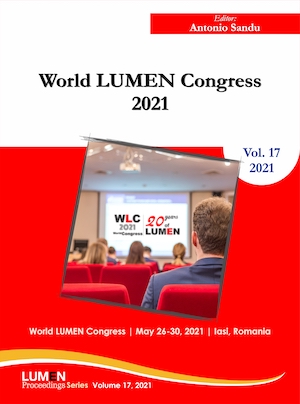Interference with Freedom of Expression
Interference with Freedom of Expression
Author(s): Gabriela Nemtoi
Subject(s): Social Sciences, Media studies, Communication studies, Sociology, Applied Sociology
Published by: Editura Lumen, Asociatia Lumen
Keywords: Right to free expression;expression as information;expression as human dignity;limits of the right to expression;
Summary/Abstract: Established as a personal right, the right to free speech implies obligations and duties, which may generate possible restrictions. Freedom of expression works correctly in a legal framework when it comes to a legitimate aim in a state law. Article 10, paragraph 2, of the Convention explains the conditions under which the right to freedom of expression is justified by the need to protect certain public interests (such as those relating to national security, the territorial space of the state, public order, the prevention of crimes, the protection of health and social morals, the guarantee of authority and the impartiality of the judiciary) but also to protect certain private interests, such as reputation and the rights of others. persons or the need to prevent the publication of secret information. This paragraph basically authorizes states to take certain measures to protect those interests, which materialize through rules and normative rules of the right to conscience, opinion and freedom of expression States enjoy a margin of appreciation for establishing the need for such reactions in a state governed by the rule of law, but in the end it is also up to the European Court of Human Rights to rule on the compatibility of interference with the provisions of the Convention, assessing on a case-by-case basis if the interference arises as a result of the urgent social issues and whether it is fair.
Book: World Lumen Congress 2021
- Page Range: 498-506
- Page Count: 9
- Publication Year: 2022
- Language: English
- Content File-PDF

